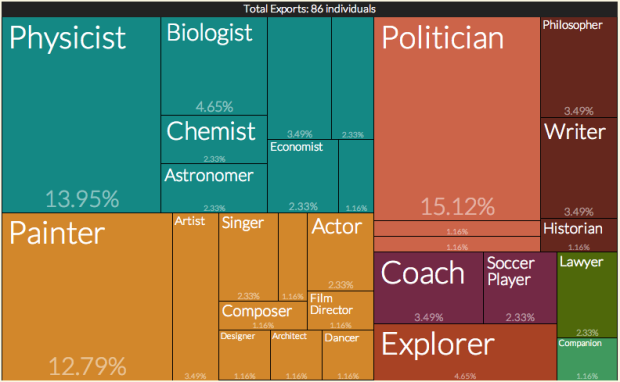Pantheon, a project from the Macro Connections group at The MIT Media Lab, explores cultural influences across countries and domains.
To make our efforts tractable, Pantheon will not focus on culture, as it is understood in its broadest sense, but on cultural production. In a broad sense, culture can be understood as all of the information that humans—or animals [1]—generate and transmit through non-genetic means [2]. At Pantheon, however, we do not focus on the entire range of cultural information, but in a subset of this information that we define narrowly as cultural production. That is, we do not focus on cultural information such as passed on family values or societal trust [3], but on cultural production as proxied by the biographies of notable historical characters. Moreover, we focus on the subset of cultural production that we can identify as global culture, meaning the subset of cultural production that has broken the barriers of space, time and language.
Rankings inevitably come into play, such as who the most influential philosopher, physicist, or country is, and the project covers a broad spectrum, so the methodology is the most important here. Using data from Wikipedia, Freebase, and other online sources, the researchers created several indices that essentially give a score to individuals for popularity and production. This naturally results in estimation fuzziness, which means you take the results with salt and all that.
It’s an interesting look though and a good start to something bigger. If anything, you’ll probably learn something new after poking around for a bit.


